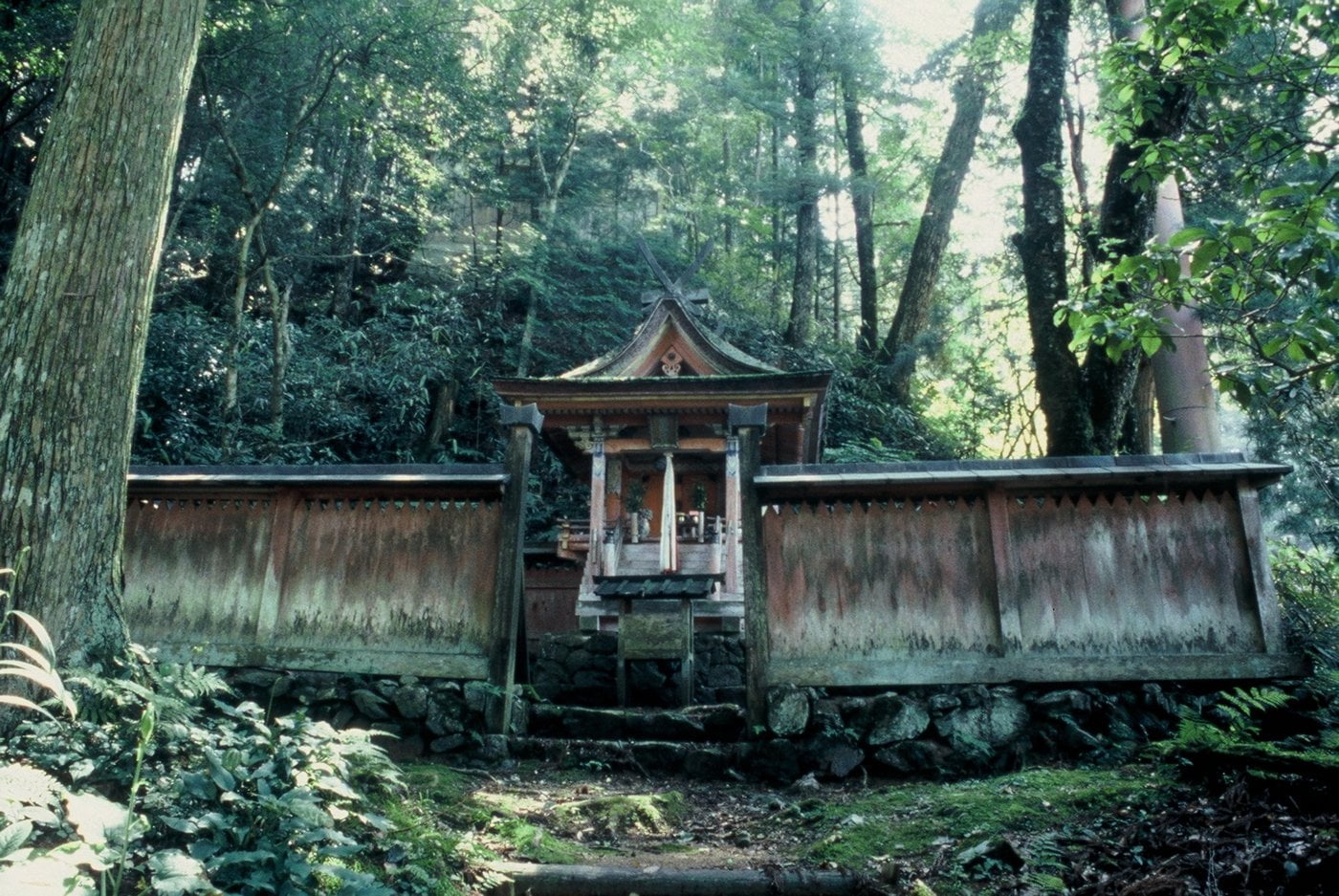Journey back in time to the sacred mountains of Wakayama Prefecture, Japan; where the ancient town of Koyasan stands as a testament to the profound spiritual traditions that have shaped the nation’s history. Home to an active monastic center established twelve centuries ago by Kobo Daishi, the revered monk who founded Shingon Buddhism, Koyasan continues to draw thousands of pilgrims and tourists every year.
The secluded mountain town was established as a retreat from worldly distractions, where Buddhist monks could practice their faith and pray for the peace and welfare of people. As part of UNESCO’s “Sacred Sites and Pilgrimage Routes in the Kii Mountain Range,” its auspicious location is said to rest between eight mountain peaks resembling a lotus flower.
Journey back in time to the sacred mountains of Wakayama Prefecture, Japan; where the ancient town of Koyasan stands as a testament to the profound spiritual traditions that have shaped the nation’s history.
A taste of the monastic way of life
One of the most unique aspects that Koyasan offers travelers is the Shukubo experience. Shukubo refers to the practice of staying in a temple lodging, where visitors can live alongside the resident monks and partake in their daily routines. Eko-in Temple is a prime example of such an establishment, granting guests an authentic glimpse into the monastic lifestyle.
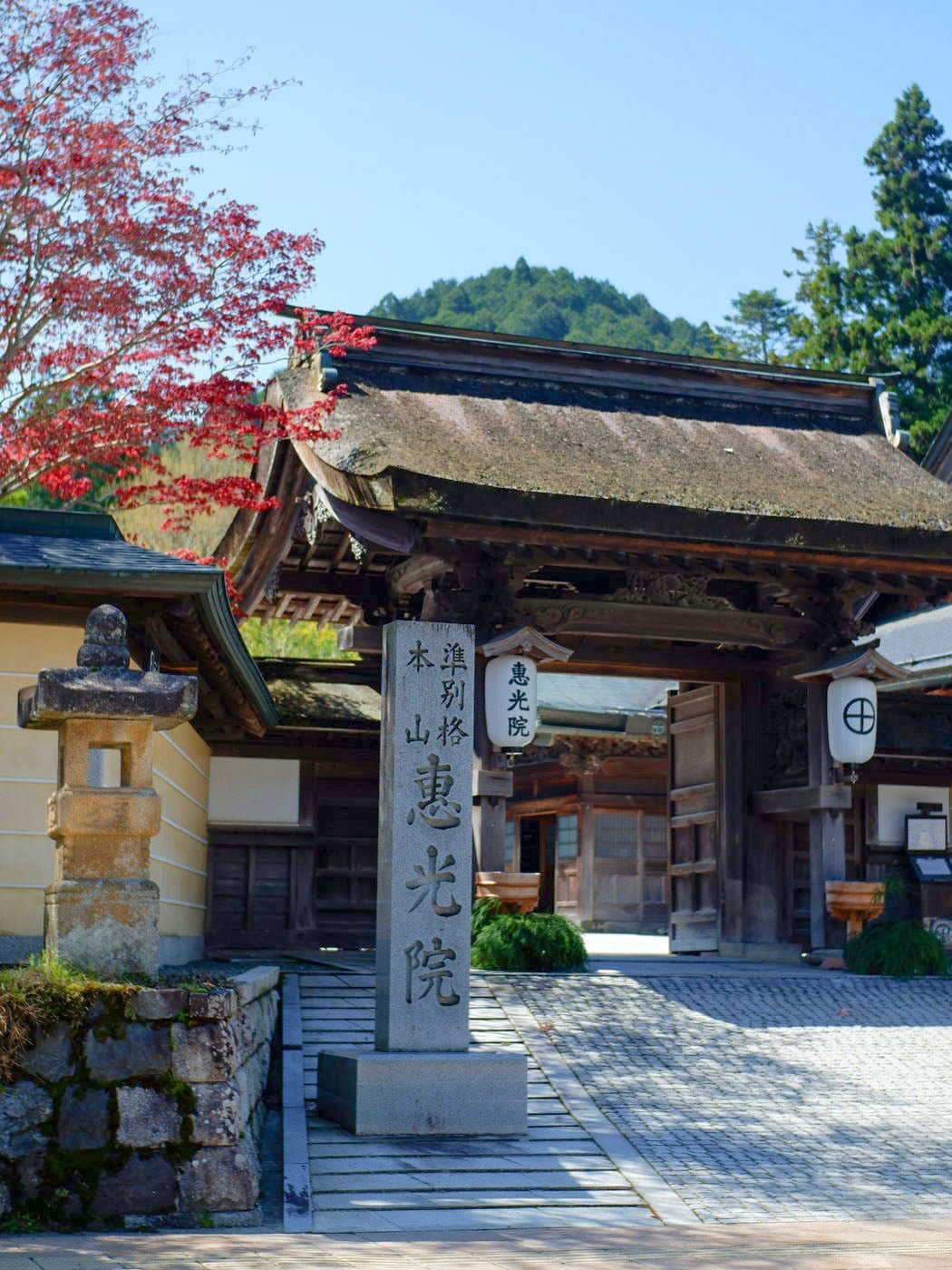
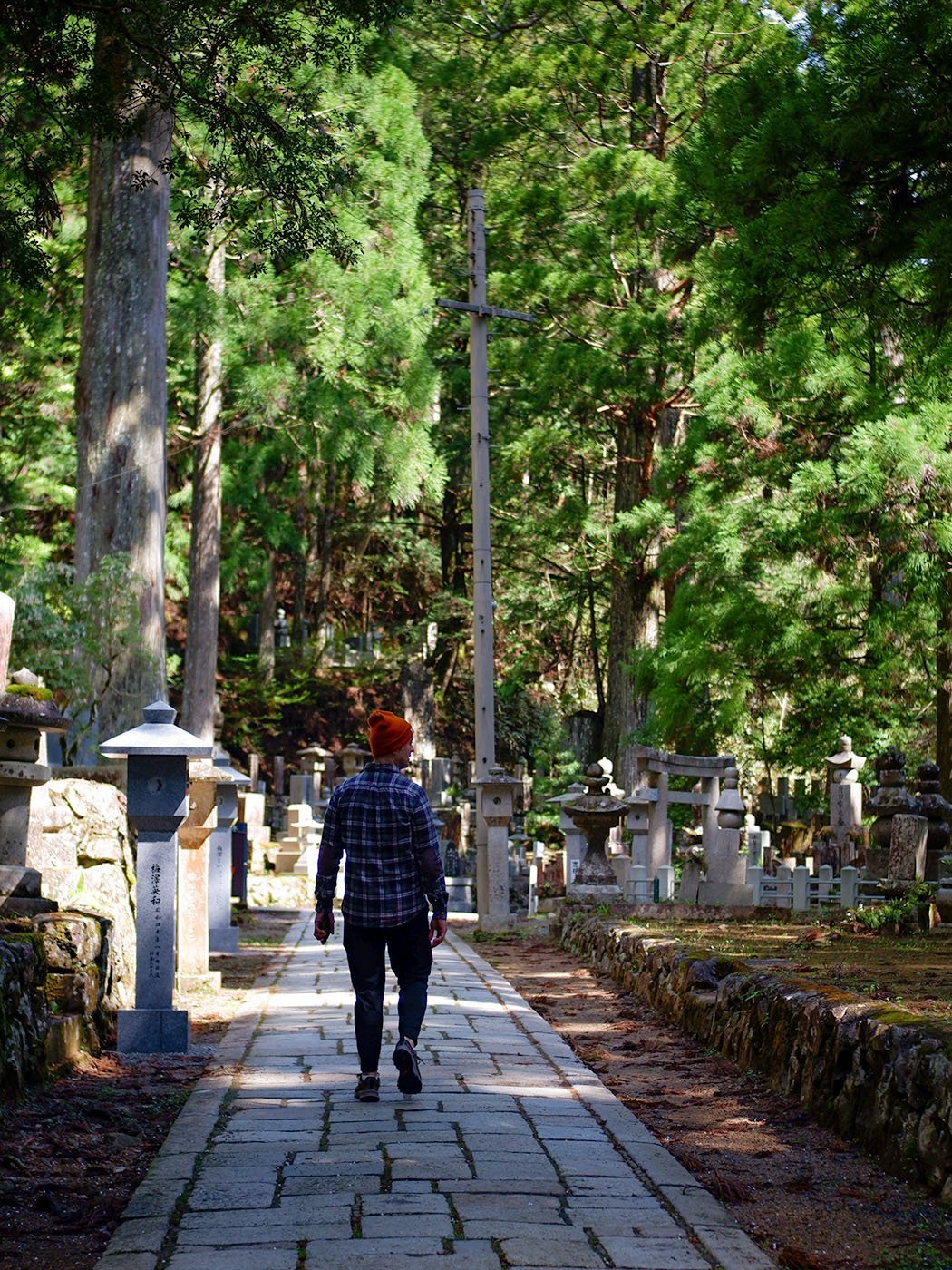


Whether on a solitary journey, traveling with a partner, or on a retreat with family and friends, the monks at Eko-in Temple extend their gracious hospitality, warmly welcoming all guests into their sacred sanctuary of tranquillity. The temple offers a variety of rooms, blending traditional minimalist Japanese-style accommodations with modern comforts. Warm waters sourced from the springs of Koyasan fill the baths, to soothe and rejuvenate guests after a day of exploration and reflection.

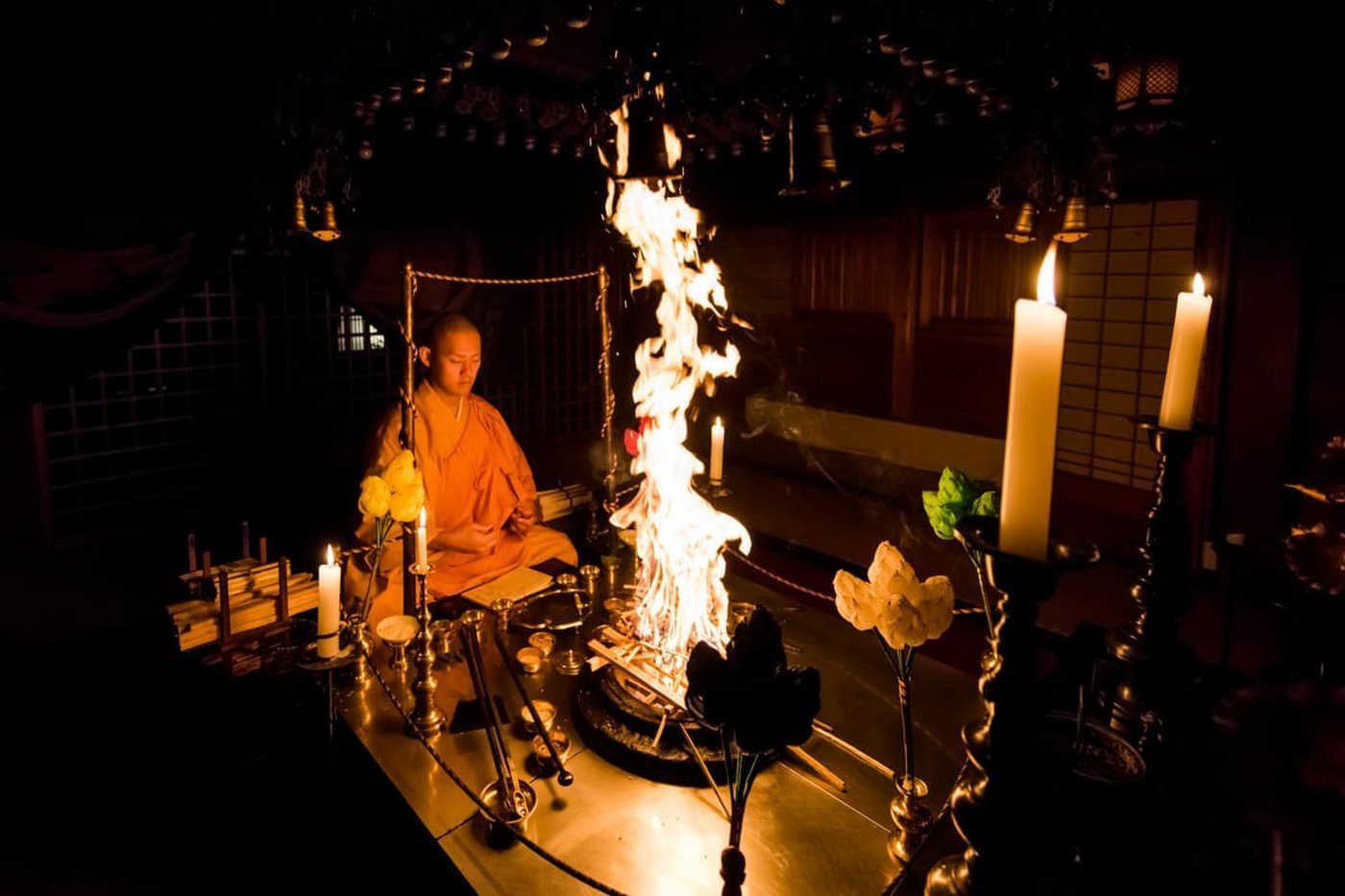

Guests are invited to partake in the daily rituals. In the morning, a heartfelt ceremony pays homage to ancestors and revered Buddhist saints, followed by the captivating Goma fire ritual, a prayer to fulfill wishes. The serene ambiance and soft candlelight create an ideal setting for introspection. In the evening, guests are taught the Ajikan method of meditation and are encouraged to practice.
Plant-based gastronomy at its finest
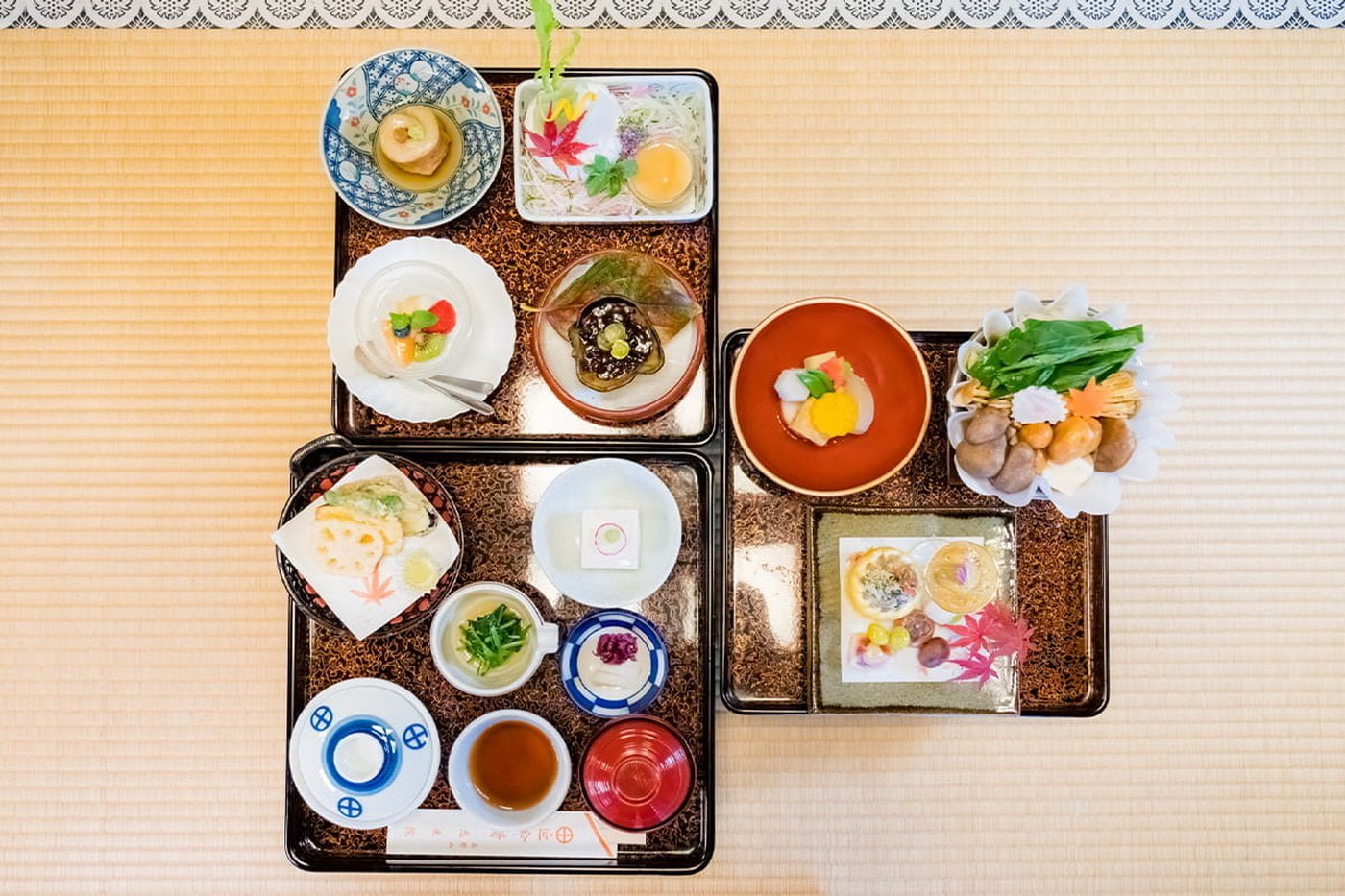


A highlight of the Shukubo experience at Eko-in Temple is the exquisite vegetarian Buddhist cuisine, known as Shojin Ryori. This plant-based gastronomic tradition is rooted in Buddhist principles of compassion and mindfulness, with each meticulously prepared dish offering a harmonious blend of flavors and textures. Guests are treated to an array of seasonal vegetables, soybean-based foods, wild mountain plants, and other ingredients sourced from the local region, which are believed to bring balance and alignment to the body, mind, and spirit.
Tranquility and enlightenment, within reach
Eko-in Temple is within walking distance to the Ichinohashi Bridge, which marks the traditional entrance to Okunoin, the site where Kobo Daishi is believed to be resting in eternal meditation. The path to his temple, nearly two kilometers long, is surrounded by towering cedar trees and thousands of mossy tombstones. Throughout the centuries, many have come to this final resting place, seeking proximity to Kobo Daishi in hopes achieving enlightenment. Eko-in Temple beckons travelers worldwide to step into a haven of tranquility and embark on a retreat that nurtures the soul. Immersing oneself in this mountain sanctuary nurtures a transformative experience, reigniting a sense of inner peace and harmony.

